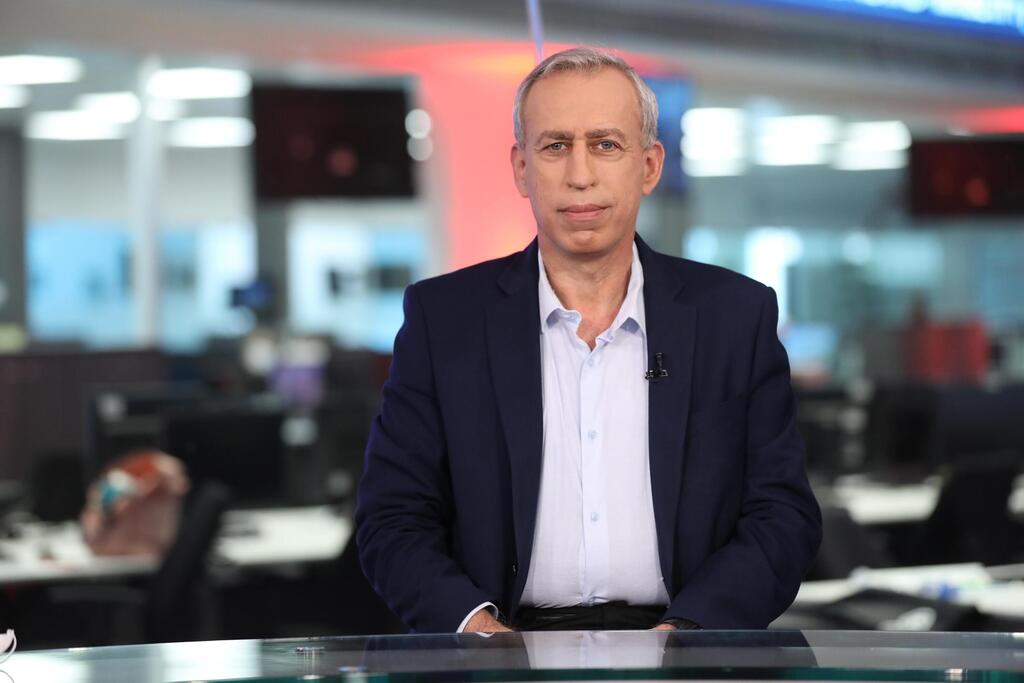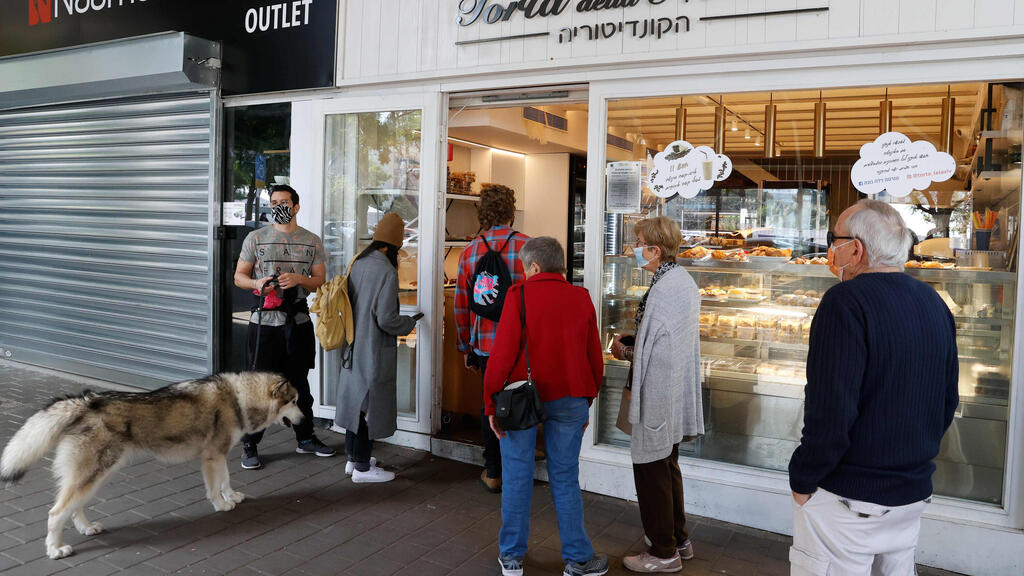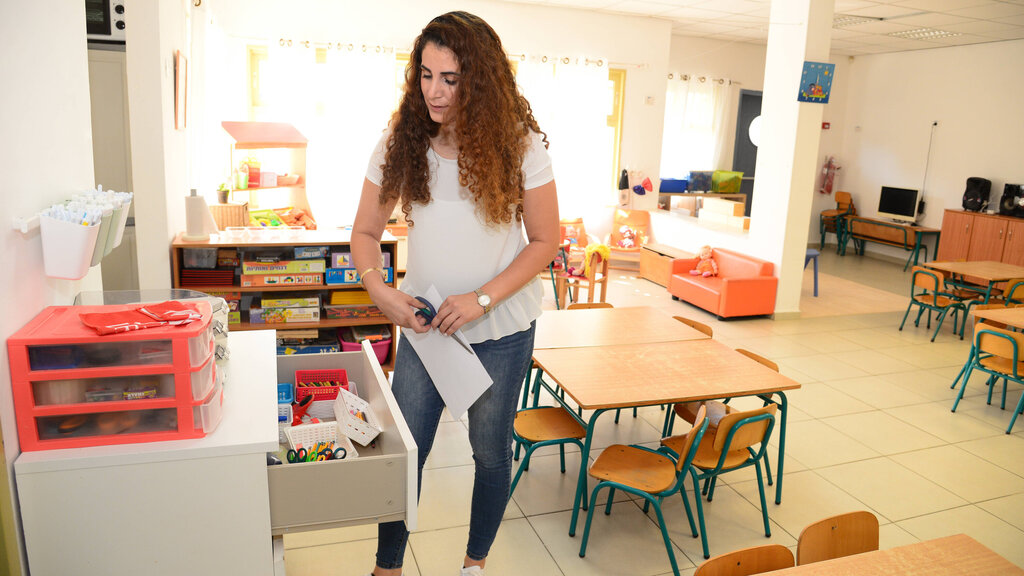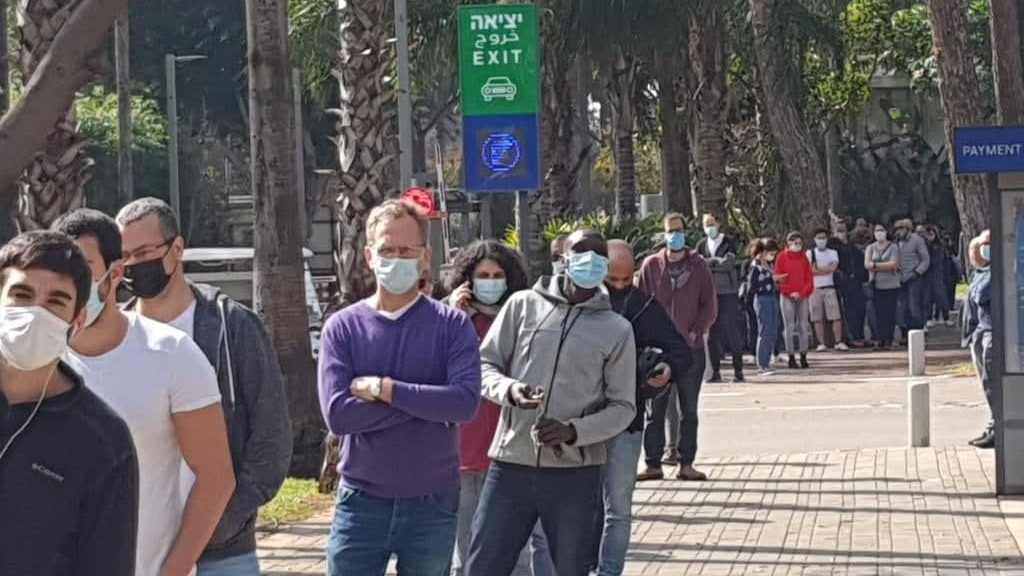Coronavirus czar Prof. Nachman Ash on Sunday expressed concern about the further spread of coronavirus after Israel moved to lift some lockdown restrictions after more than one month.
The country extended its end date for the lockdown from Friday in an effort to prevent mass gatherings on the first weekend after the closures, and on Sunday morning some businesses reopened under strict guidelines although a decision had yet to be made on how to return children to school.
5 View gallery


Coronavirus czar Prof. Nachman Ash in the Ynet studio on Sunday
(Photo: Hadar Yoavian)
Speaking from the Ynet studio, Ash said the limited reopening of some commerce requires Israelis to be more vigilant than ever.
"I am uneasy - we are coming out of lockdown with high morbidity. This forces us to more closely observe the regulations," he said.
"Wear masks, refrain from crowded gatherings and stay out of indoor settings as much as possible. We must all protect ourselves and our families."
5 View gallery


People queue in front of a bakery in Tel Aviv on Sunday following the lifting of a nationwide lockdown
(Photo: AFP)
Ash said the Health Ministry was trying to find the safest way to reopen at least some of the education system.
The ministry's proposal includes opening kindergartens and schools for the under-10s in cities with low infection rates and allowing municipalities with high morbidity to operate their schools in small groups and outdoors.
"We will monitor the situation on a daily basis to see what the increase in new cases will be," Ash said.
"I know this is not a perfect plan and that some days will be too cold and rainy for children to study outside, but we hope to take advantage of the coming week that is forecast to be sunny," he said.
5 View gallery


A kindergarten teacher prepares for the return of her class after lockdown restrictions on schools were set to be lifted
(Photo: Herzl Yosef)
He said that there was no ideal solution to reopening the schools during a pandemic.
Masks however are a must, Ash said, whether inside or outside. And social distancing must be observed as well.
Ash also urged teachers of all ages to get vaccinated. He said that the British variant now responsible for most of the new coronavirus cases is more contagious.
Children already make up 40% of the recently infected population but Ash said a solution that will allow children back in school is necessary.
"We will be taking a calculated risk here," he said.
5 View gallery


Israelis queuing for the coronavirus vaccine in Tel Aviv after the vaccination campaign was opened to all ages
(Photo: Clalit HMO)
With COVID-19 cases remaining high and contagion spreading further in Haredi communities, Ash urged ultra-Orthodox population to adhere to Health Ministry regulations.
"Police enforcement has been and will continue to be limited," he said. "We must find the right balance between public health safety and allowing the economy to operate but enforcement must be used where the public is in violation of the rules."
Asked about the efficacy of vaccines on the new variants spreading around the country, Ash said that there is no indication that the British variant is not covered by vaccines but the South African variant is still being studied.
Israel launched its vaccination drive in December and has already administered vaccines to more than 2 million of its 9 million citizens.
5 View gallery


Police officers face off against Haredi protesters against coronavirus restrictions in the southern city of Ashdod
(Photo: AP)
Infection rates among the over-60 population, which was the first to be inoculated, has dropped by 45% while hospitalizations for that age group have been down by 26% in the past two and a half weeks.
However, the positivity rate of tests conducted over the weekend remained over 9% and the reproduction ("R") number has again passed 1, which means that each newly infected person passed the disease to at least one other i.
"Since we began offering vaccines to everyone over the age of 16 last week, we see longer lines and more young people arriving at the vaccination centers," Ash said.
"We've increased the public campaign calling people to get their shots and will soon begin to allow those who are one week after have received both doses to exercise more freedom of movement, which will motivate people to take the step."
But Ash also voiced fears that in some communities, mostly with a low income population, the turnout for the vaccines was still low.
"We are now trying to bring vaccines to more remote areas and hope to overcome some of the misconceptions being spread on social media about their safety and importance," he said.

